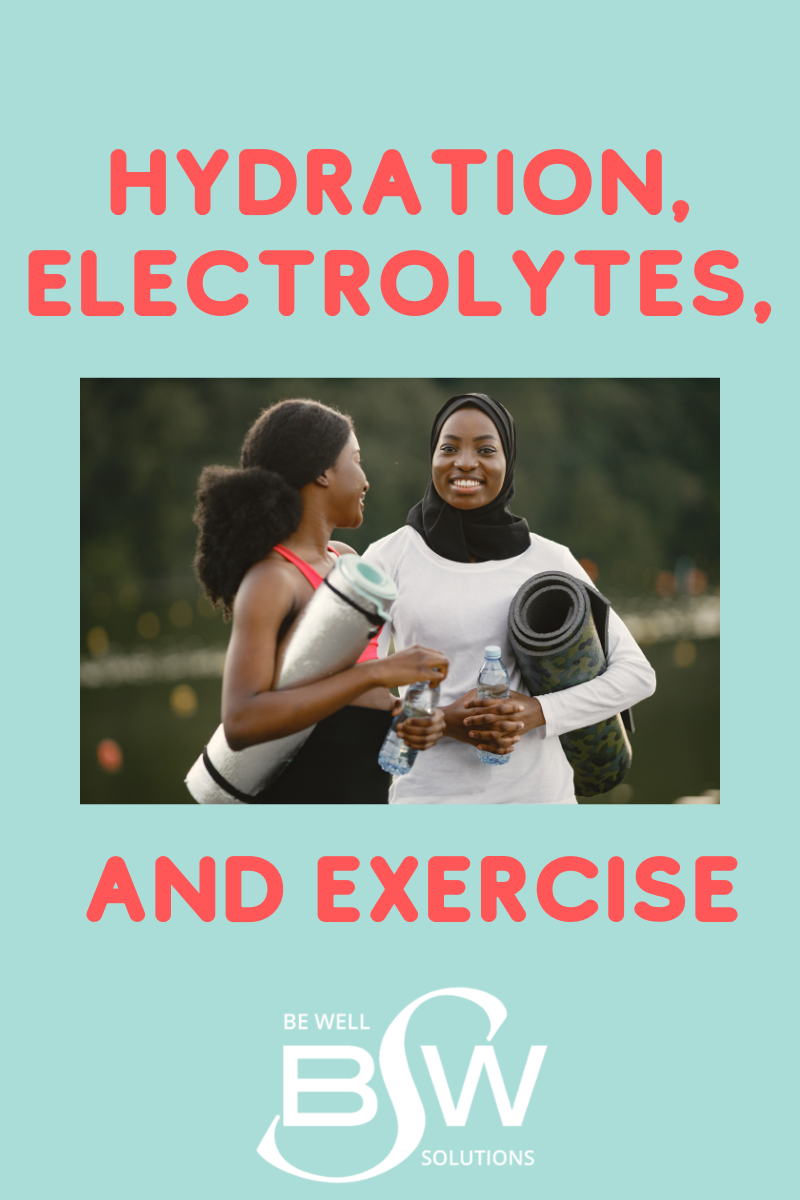
Hydration is a key factor when it comes to physical activity. Our bodies need adequate water intake to regulate body temperature, keep joints lubricated, and bring important nutrients throughout your body for energy. When you’re not well-hydrated, it can greatly impact your performance with exercise, and even more importantly, it can take a toll on things like organ function and blood pressure. From light intensity to high intensity and on hot days and even cold days, it is imperative to practice good hydration before, during, and after exercise.
What Factors Affect Hydration?
Many factors can affect hydration during exercise and activity. During physical activity, your body loses fluid through sweat. Sweating can occur on hot summer days, as well as cold winter days, and every other day in between. Sweating can occur without it being visible. For example, did you know you can still sweat while in water? Many conditions can increase sweating, which will also increase the body’s fluid loss. These conditions include warmer air temperatures, higher intensity activities, your gender and body size, the duration of your workout, and your fitness level (Eat Right). All of these factors are why it is so important to practice good hydration before your exercise, during, and even afterward to help replenish.
How Much Hydration is Recommended?
The amount of recommended water varies for every person and in every situation. For daily hydration, the recommendation is to take your body weight in pounds, divide that in half, and then aim for that many ounces. For example, someone who is 200 pounds should try to drink 100 ounces of water each day. However, when you’re exercising and sweating, that amount can increase. The best way to see if you’re well-hydrated is by monitoring the color of your urine. If your urine is clear and odorless, then you’re staying hydrated. You may also notice a change in body weight before and after exercise. Weight loss during an exercise session is generally going to be from sweat loss, and this fluid needs to be replaced promptly. You should also consider aspects like the heat and humidity, the intensity or duration of your activity, and your sweat level to determine how much water or hydration drink you should consume before, during, and after exercise.
When are Electrolyte Drinks Necessary?
In times of increased sweating, your body might need more than just water to stay properly hydrated. This is where electrolyte drinks can come in handy. According to the American Council on Exercise, “Electrolytes are positively and negatively charged ions that conduct electrical activity. In the human body electrolytes must be present in proper concentrations to maintain fluid balance, muscle contraction, and neural activity.” During exercise, the body can lose electrolytes like sodium, chloride, potassium, magnesium, and calcium through sweat. Electrolyte loss can increase during bouts of activity that are more intense, longer in duration, or occur on a hot and humid day, which can cause an electrolyte imbalance. If you know ahead of time that you’re going to be sweating a lot or for an extended period, then you should think about electrolyte replacements or sports drinks as part of your hydration. During longer exercise sessions a sports drink with electrolytes and carbohydrates is recommended to help with electrolyte replacement and additional energy. While sugary beverages are something to be mindful of, sports drinks serve a specific purpose. They should be used responsibly and thoughtfully to help maintain adequate hydration with exercise when necessary.
What are the Signs of Dehydration?
If you’re feeling thirsty, chances are you’re already a bit dehydrated. Start hydrating before beginning your activity, so you don’t wait until you feel thirsty. Other early signs of dehydration include fatigue, a rise in body temperature, decreased performance, and flushed skin. Later signs of dehydration can include dizziness, muscle cramping, nausea or vomiting, or dry skin when you’re no longer sweating. As dehydration worsens, symptoms can progress into mental confusion and loss of consciousness (CHKD Sports Medicine). If any of these severe symptoms occur to yourself or someone you’re exercising with, seek help immediately and call 911 when necessary. On a hot day where you’re sweating a lot, you might be tempted to pour water over your head. Certainly, this can feel good during a hard workout, but make sure you’re drinking plenty of water too. Your body can only replenish fluids and cool itself from the inside out when you drink it.
Plan your hydration along with your exercise. Make sure you think about factors like the weather, duration, and intensity. It’s always better to have extra water than to run out! Consider an electrolyte replacement for longer or more intense activities.
Always consult with your physician before starting a new exercise program.
Written by BWS Lead Health Coach- Kelly Schlather, BS, ASCM – CEP
Continue reading July 2022 Newsletter: Mocktails- Happiness in a Cup
